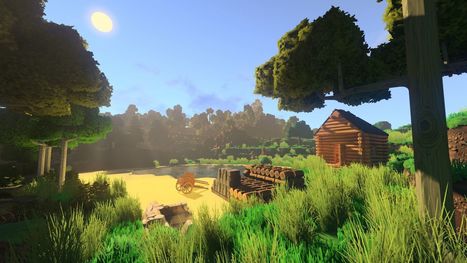In the past decade, researchers have shown that playing games can boost students’ ability to think in systems. Any game is a system, after all, and when players take actions, the game itself, as an interactive system, can change. Moving a knight across a chessboard, for example, can change everything for the opposing player.
What is systems thinking? According to the Partnership for 21st-Century Learning, systems thinking relates to critical thinking and problem solving, and systems thinkers can “analyze how parts of a whole interact with each other to produce overall outcomes in complex systems.”
Research and publish the best content.
Get Started for FREE
Sign up with Facebook Sign up with X
I don't have a Facebook or a X account
Already have an account: Login
News, reviews, resources for AI, iTech, MakerEd, Coding and more ....
Curated by
John Evans
 Your new post is loading... Your new post is loading...
 Your new post is loading... Your new post is loading...
|

Pamela D Lloyd's curator insight,
February 28, 2015 6:58 PM
We learn by doing, so teaching should ask us to do. |













